Is it Better to go on holiday with or without your cat?
Most cats prefer to stay at home when their family goes on holiday. However, some are so affectionate and relaxed that they enjoy travelling with you. Our helpful checklists below will help you prepare for a holiday together and give you advice on what options you have for a cat that prefers to stay at home.
The decision as to whether you can take your cat on holiday with you depends largely on your pet's personality and needs.
The advantages of taking your cat on holiday
- Time together: Most cats are not suitable for holidays with their humans, but if they are used to it, it can strengthen the bond between humans and cats.
- No worries about organising a pet sitter: There are no uncertainties and costs associated with having someone else look after your cat.
The disadvantages of a holiday with a cat
- Stress for the cat: Travelling can be very stressful for cats, mainly due to transport and an unfamiliar environment.
- Restrictions: The cat may often have to stay alone in the holiday flat, hotel room or motorhome, which it may not like. Free-roaming cats cannot explore their familiar surroundings as usual, go on territorial walks or have contact with familiar conspecifics.
- Logistical challenges: Finding cat-friendly accommodation requires a certain amount of effort and can be difficult.
- Consideration when travelling: Travelling times would likely be extended due to necessary regular breaks. In addition, when travelling on day trips, it must be taken into account that the cat may not want to be left alone in a strange new place for long periods.
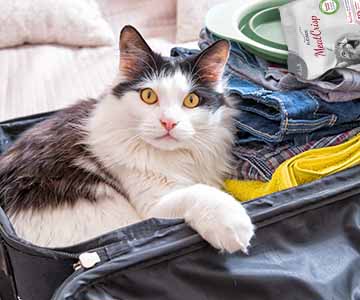 Whether the cat can come on holiday depends largely on its personality.
Whether the cat can come on holiday depends largely on its personality.
The cat carrier should be accepted
If you have a cat that immediately runs away at the sight of a cat carrier box, this will need to be improved prior to any cat holiday adventures. Whether you're travelling by car, camper van or train, the cat must be kept safe during the journey. If you are thinking of going on holiday with your cat, building a positive association with a cat carrier is essential. However, as most cats only experience cat carriers in connection with an unpleasant visit to the vet, many cats have a negative association with cat carriers and become easily stressed by them. This could cause holiday planning to fail; you certainly don't want your cat to cry and be stressed for hours on end inside the carrier as you travel. If you are considering a holiday with your cat, you must integrate a crate into your daily routine well ahead of time.
Ideally, place the cat carrier in your home so that it gains the familiar scent of its surroundings. Set it up with a cosy blanket, put toys in it and reward your cat with tasty cat food - such as our MeatCrisp - when it relaxes or spends time inside. The box should be at a height that the cat likes to visit. But that's only half the battle: Two trips a year to the vet are not ideal preparation for a longer journey. Plan to take occasional positive short trips that are not to the vets, that are simply for training.
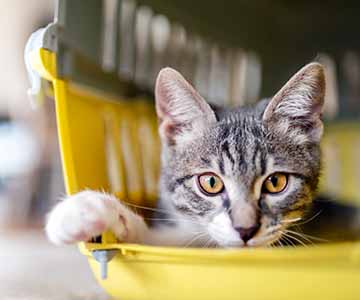 In order to go on holiday, the cat should not have any problems with cat carriers.
In order to go on holiday, the cat should not have any problems with cat carriers.
What to pack in your cat's suitcase?
If you have decided to go on holiday with your cat, you must make it as relaxing as possible. This means that familiar things should always be packed. This includes:
- Transport box
- Cat bed
- Cuddly cave
- Possibly a scratching post (depending on how big it is and whether it is practical)
- Toys
- Cat litter tray
- Litter and scoop
- Bowl
- Cat food
- Possibly a harness and lead
- First Aid Kit
- EU pet passport
Bear in mind that a rabies vaccination is mandatory when travelling abroad. Vaccinations against cat flu are also recommended. The cat must also be chipped. If you have registered it with PETtrac or another microchip database, this is a great advantage if your cat escapes and is found by someone. When the chip is read, it can be immediately assigned to you.
Plan a routine for your trip.
Cats most often accompany their humans on camping trips or during a stay in a holiday cottage. You can create a cosy environment for your cat in a motorhome, caravan or holiday home. Ideally, you should continue to stick to regular routines as much as possible.This mainly concerns feeding times, but also play sessions and any bonding time spent with your cat.
Just because your cat is used to being alone at home doesn't mean they will settle in a different place. Try this with shorter periods of absence first. During these, it is important that the new indoor space is pleasant, safe and secure. This should be easy in a pet-friendly accommodation; however, when camping, it must be ensured that there is no risk of overheating. Sufficient air exchange is required without the possible risk of the cat escaping. It is best to think about how you can organise well in advance of travelling.
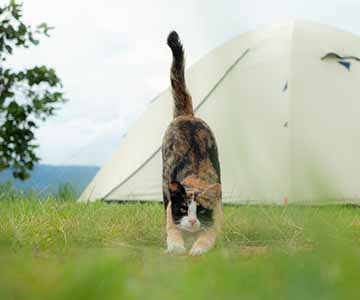 Routines are important even on holiday.
Routines are important even on holiday.
If your cat stays at home on holiday
Cats are very territorial and don't usually like to leave their familiar surroundings. If your cat is prone to stress and is otherwise not well-suited to travelling, you should arrange for a pet sitter or family member. There are a few key points to bear in mind:
- Decide what kind of care your cat needs: For most cats, a daily or twice-daily visit from a cat sitter is sufficient. Each visit should include refilling food and water bowls, cleaning the litter tray and social interactions for your cat.
- Organise care for your cat in good time: If you are unable to find a neighbour, friend or acquaintance to look after your cat, you need to take action early on: Cat sitters and boarding often book up quickly during the high season. If you organise your cat's care in good time, you will ensure you have enough time to prepare your cat and the carer for your absence.
- Make sure everything is up to date: Check as soon as possible that your cat is up to date with vaccinations, flea treatments and health checks. Make an appointment with your vet well in advance if you want to have your pet rechecked before you leave.
- Choose the right cat sitter: Prepare your cat for being looked after by a sitter by either choosing someone who is already familiar or by allowing enough time for your cat and the sitter to get to know each other slowly. It is particularly important for anxious or shy cats to build up trust prior to your absence. This will make them feel more comfortable while you are away, even if someone strange comes into the house.
- Leave detailed instructions for your cat sitter: Make sure your cat sitter understands your cat's habits, behaviour and routine. Include details such as feeding times and portion sizes, play preferences and any medication that they may need.
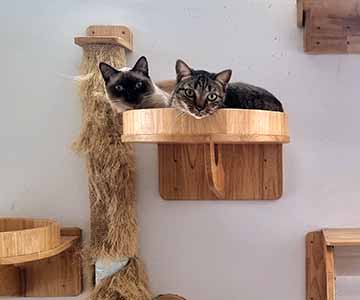 If the cat stays at home, you should arrange for someone to look after it while you are away.
If the cat stays at home, you should arrange for someone to look after it while you are away.
Accommodation in a cat boarding facility
If you can't find anyone to look after your cat at home, you have the option of placing your pet in a cat boarding facility. Keep the following points in mind:
- Book early: Good cat boarding facilities or catteries are often booked up quickly, especially during the holiday season. So plan well in advance.
- Visit the boarding facility: Visit the facility in advance to make sure it is clean, safe and suitable for your cat. Look out for retreats, climbing areas and good conditions.
- Check reviews: If you haven't received a personal recommendation, check and read reviews from other cat owners.
- Update vaccinations: Your cat should be vaccinated against cat flu. This is mandatory in most boarding centres.
- Deworming and flea protection: Make sure your cat has recently been wormed and has up-to-date flea protection if using a boarding facility.
- Neutering: Many catteries will only accept neutered animals, especially male cats.
- Trial stay: If possible, arrange a short trial stay at the cattery so that your cat can get used to the environment and you can judge whether a longer stay is possible.
- Bring personal belongings: Bring familiar objects such as a blanket, den, cushion or a toy. A familiar scent will help your cat feel more comfortable.
- Pack favourite food: Bring your cat's usual food and leave precise feeding instructions (e.g. portions, times).
- Medical care: If your cat needs medication, provide this along with clear instructions. Also, clarify in advance which vet is responsible in an emergency and whether a 24-hour emergency service is available.
A relaxing holiday – with or without your cat
Whether your cat goes on holiday with you or stays at home, the most important thing is that it feels safe and comfortable. With good preparation, you can ensure that your holiday is as stress-free as possible for both of you so you can enjoy your trip and rest assured that your cat will be in good care while you're away.


 Deutsch
Deutsch
 English
English
 Nederlands
Nederlands
 Français
Français

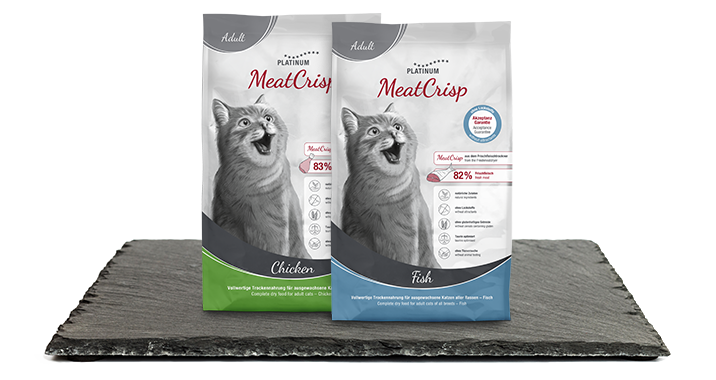
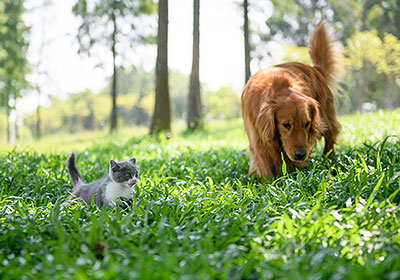
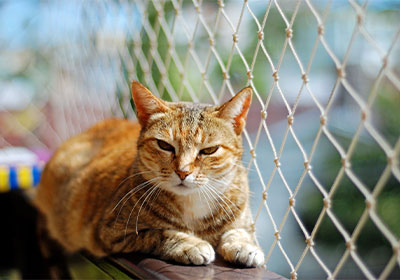
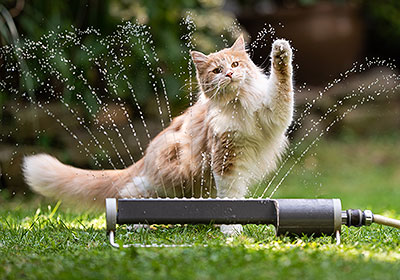
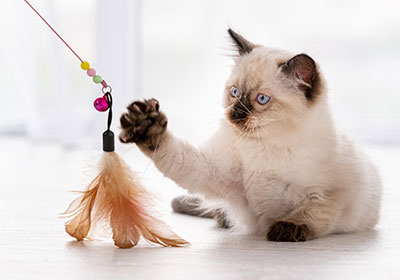
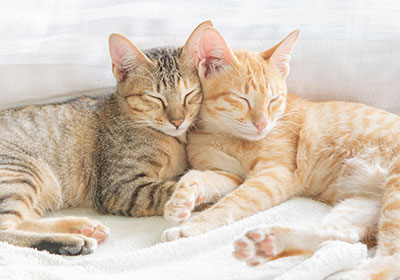
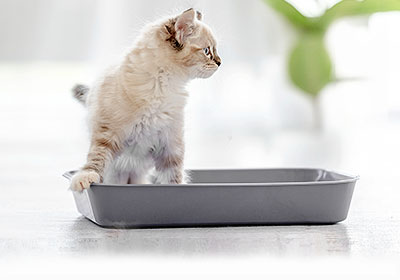
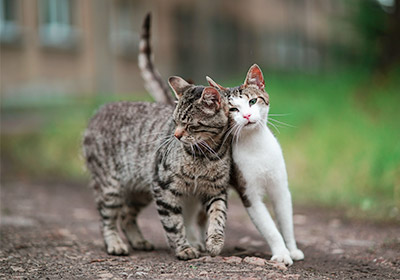
.png)
.png)
.png)

